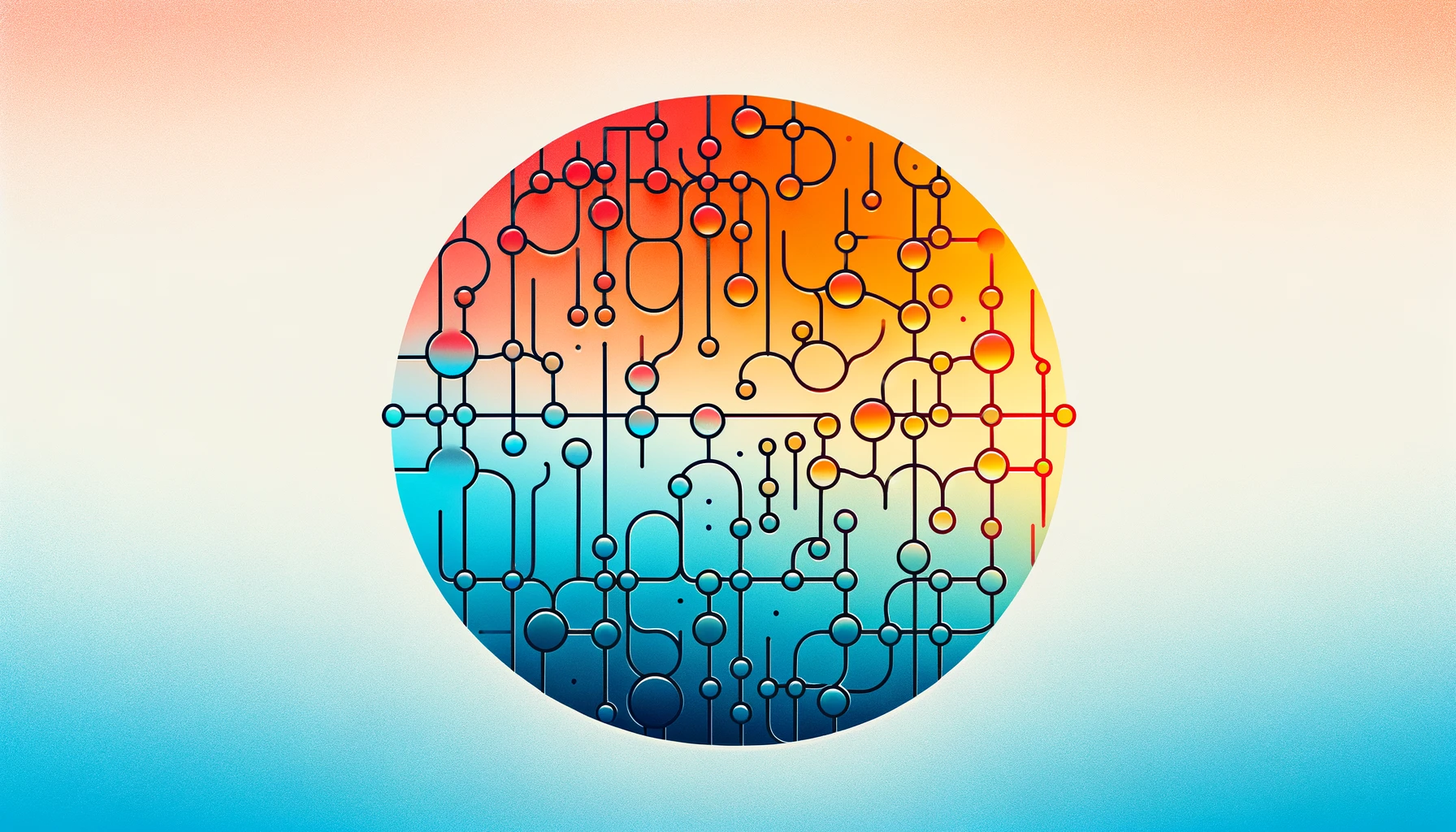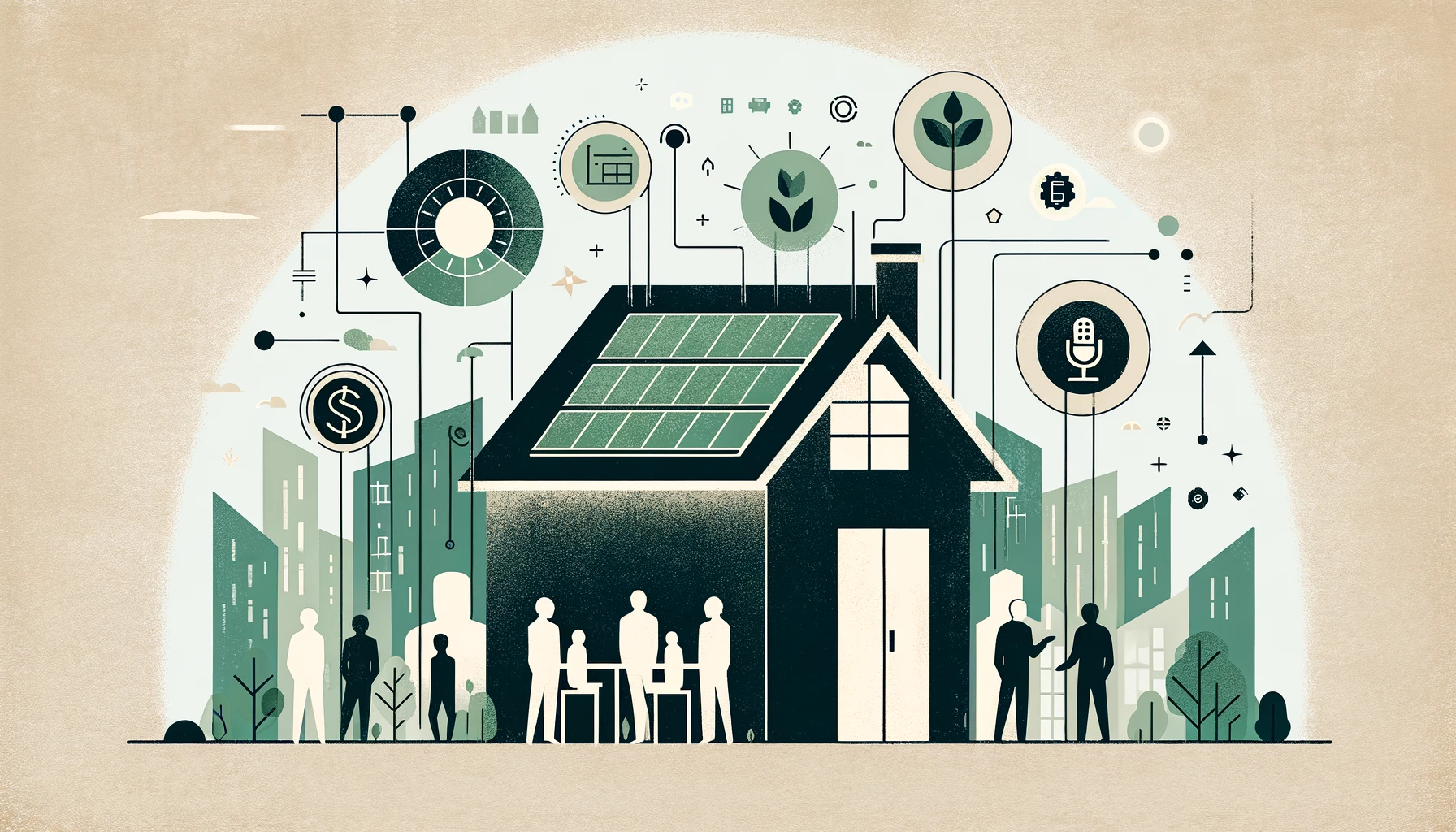
Energy One Podcast, Episode 6 - Rhythm Energy and Net Metering with CEO PJ Popovic
Summary & Key Highlights
Welcome to Energy One, the podcast that explores the world of Energy through the eyes of industry leaders, experts, and innovators.
In this episode, we change it up a little bit as we have our Director Paul Eaton host. He speaks to PJ Popovic about the Renewable Energy landscape.They break down what Net Metering is all about and why it's so important for households that have solar panels. They also explored the unique energy landscape in Texas, among other things.
Our Guest Today: PJ Popovic
PJ is the CEO of Rhythm Energy and an accomplished business leader known for successfully expanding consumer-facing businesses and assembling high-performing teams. Rhythm embodies three of PJ's key passions: delivering exceptional customer experiences, harnessing technology, and promoting renewable energy. They aspire to make customers genuinely love their electricity provider by showing that an energy supplier can be transparent, innovative, and customer-centric, all while offering competitive pricing and clean, reliable energy.
Interview with PJ Popovic about Rhythm Energy and Net Metering
What was your path into the energy industry?
So I've been working in the energy industry for a while now. And I had a chance to really work on the customer offers, basically how the energy industry interacts with the energy companies in the customers for many years. I had a chance to actually be general manager of a business that serves millions of customers in North America. And one of the things, by the way, that I observed and noticed is that with energy transition that is really accelerating, there is a lot to be desired, for those customer's needs and wants are ultimately not addressed through innovation in this space.
So really, in 2020, I decided to launch Rhythm Energy, and really address some of those needs and kind of combine things that I really enjoy doing and working that I believe you could actually really translate into amazing customer experiences. Those are really technology and technology investment, which I really believe you can build amazing experiences using good tech and good tools to do things very differently. The second one is really building experiences that are really unseen before not heard before in this industry.
So I asked myself a question, what would it take for customers to fall in love with their electricity provider? It's not a question that is normally asked and people expect. But I believe that is really such an important one to address. And the third one is really how can you take renewables? And how can you actually take the lead on the energy transition, and really help consumers win in that transition?
So as part of Rhythm, we went on the journey, we actually wanted to build really great tools and tech that actually gets the best customer experience you can absolutely get. We're so proud to say that we have fantastic net promoter scores, fantastic customer satisfaction scores, to say that we have achieved maybe that first part of the journey. And now we're basically right on the path where we actually are looking to lead the way on the energy transition side.
Can you explain what net metering is in our works?
Yes, so for companies like Rhythm, we serve customers who install solar on the rooftops. And if you think about, you make sure that your investment in such a big asset purchase, like solar and battery, or just solar for that matter, you want to make sure that you have a company that can really sell you electricity when you're not producing, or you're producing more than you actually consume, you want a company that will buy that back from (you).
So net metering implies, where you actually have a setup, a structure in place that will allow you to import electricity when you need it, and export electricity when you have excess electricity. So we have a number of those plants. And actually that's one of the things that actually is really a must have if you have solar or any kind of generating asset in your house.
Are there any drawbacks or risks involved in net metering?
So we have seen over the course of several years, quite a bit of evolution of net metering plants. And I will say many utilities across the United States had a little bit of a learning process in terms of what is the best and most optimal net metering plant that ultimately will benefit not just the consumer, but actually will be something that's more sustainable in the long run. And ultimately, we'll create a grid that is actually sustainable as well.
If you think about, like what is the challenge, let me start with the real challenge: as a solar producer you end up producing energy when the sun is up. And nowadays with the explosion of solar, both utility scale solar and the rooftop solar, we're seeing a lot of generation during the day hours, not everyone and not many people do not have batteries, do not have capability to store that electricity they produce. So what ends up happening is that the market gets flooded with the cheap solar energy during the day. That is not necessarily with the market the other consumers in the state want to or need the energy. So we've seen really deterioration of the electricity price during the day hours when you have a lot of cheap solar energy being produced.
So there is a lot of questions around is this sustainable, if you think about it, in the long run, we're going to have to go to some kind of a combination of solar and battery, we actually, consumers can be a little bit more capable of actually timing and shifting that generation or exports to ours when the energy is needed. This is, by the way, not just the issue with the residential customers. This is also the issue with the grid itself with utility scale solar. And we've just been hearing from the Public Utility Commission of Texas, some of the challenges that renewables without actually enough dispatchable generation can bring.
So for that reason, as I said, evolution of the energy price we've seen, is really towards incentivizing customers to be paid more in the hours if they export in the hours, especially evening hours when actually, electricity is more needed. Really what is the consequence of that, we're going to see probably more and more incentive towards, solar systems that are bundled with the batteries, and basically will allow consumers that flexibility in terms of when they can export their energy.
Paul:
Along those lines, I recently read a New York Times article related to the concept of a battery, where there's a huge increase in these construction projects where they build a small reservoir in the mountains. And during the night, when the electricity is cheap, they 32pump the water from the lower reservoir up to the elevated reservoir, storing that energy. And then they have turbines, in times of high demand, they turn on the water, the turbine runs, and they sell the electricity into the grid, which is as very interesting. And that was in the New York Times. I think last week, it was a very good article.
What impact does net metering have on the energy market and grid stability?
So the way I would actually summarize it, net metering products, in a way, will allow customers to monetize their asset investment, big purchase. And a good well structured net metering product will actually impact grid stability, through incentivizing certain types of behavior and certain types of investment. As I stated before, in the state of Texas, just to focus on that one for a second, we've seen a big evolution of the net metering plans, as it's called here, solar buyback plans, where we are moving again more towards the structure where again, you can see now plays that are back to the Index price in terms of the export value being pegged to the real time energy price.
So yes, you are seeing actually, some more and more tying of those net metering applies to the real time energy, which again, will incentivize customers to export energy in the evening hours. So if you think about that particular example, I just used, there is definitely an incentive that is going to drive customers from just solar, which may have been okay, in the years behind us to more of a battery, solar plus battery, which again, will incentivize certain types of behavior.
You also are seeing now, not sure how much you followed. But for example, California has net metering rules change, big change, there was actually quite a bit in the media recently, where they actually went as extreme as to say that they have too much solar as a matter of fact, now on the grid, and they're now charging quite a bit of money to get solar connected to the grid itself. So you will probably see a decline in solar investment. So pretty much net metering growths, I would argue, are really a direct investment in more solar less so and so forth.
One thing I do want to point out, though, is that net metering rules are in in plans are not the only thing that actually will drive investment in solar, we're seeing, of course, a huge incentive driven to an IRA, that actually we know will drive again, more investment because you getting nice tax incentive for customers to invest in solar, invest in batteries. So I would argue that in the years to come, you're going to see it definitely continue to accelerate the actual investment where people are installing more and more solar batteries in their households.
Will net metering affect the grid in severe climate events?
So I would say that net metering will be a small component in actual grid stability. You have to take a step back and think about the overall market design and actually everything else that's going on when we talk about grid stability. First of all, I think you asked the question around the weather events. I think we're all seeing that the weather events are becoming more common. Right now. I think we can all expect that you're going to see a deep freeze in Texas almost every winter, we've seen it at least the last couple of winters. And we just went through the winter storm earlier in December. And we've seen something that's really resembling Uri, which we all thought will be a one-in-how-many-decades event?
Well, first of all, let's set it straight, like winter events and weather events, Uri weather events are going to continue happening, probably at an accelerated pace. Now, if you ask yourself a question, like what is going to allow us not to lose power, and ultimately, to have something that's really, we all want to have, like, ultimately, it's really important for us to have power and actually be able to turn the heating on, when you need it, especially during the winter, you're asking about market design as a whole.
We just had a couple of days ago, the Public Utility Commission in ERCOT, really came out and talked about this upcoming summer being really challenging from the perspective of not having enough thermal generation to supply potentially all of the customers in some of the big summer scenarios. So I would say that the important piece here to talk about is the market design. And let's actually set this straight: we do not have a very reliable market, in my view, at this moment in Texas.
Just the very fact that we're talking about, potentially that if the wind doesn't blow and the sun doesn't shine, we're going to be potentially losing power, in my view, is not a really good position to be in. And you really ask a question, why are we acknowledging this now, why we didn't ask this question years ago. But anyway, nevertheless, we are talking about it now. And I would say that the combination of the thermal generation and really dispatchable generation is a must have for a state that has a tremendous growth, we in Texas are seeing every year, hundreds and hundreds of thousands I believe, the estimate was 300,000 Customers comes in here every 12 months.
We're seeing more and more businesses opening up. And this is something that you regret to take seriously and understand that we need a market design that's going to give us a balanced development where we're going to have some thermal generation being there and growing with renewable generation, as we try to find these new innovative ways to store that energy. And you mentioned one example. You know, we're talking about hydrogen facilities, we're talking about more and more batteries, longer duration batteries being built out. This is one thing that's still out in the open and still undecided. What is that right balance. But I mean, let's just agree one thing is that we need to have a proper market design. And net metering is just a small component to that overall design,
Do you see any potential changes that Texas may have regarding net metering and the regulations they're in?
So, net metering in Texas, unlike California, is done by the retail energy providers themselves. So retail energy providers here in Texas really control the plants that customers ultimately subscribe to. So you've seen an evolution of those plans, as those retailers, we're looking to find the best plan that will balance out. Ultimately customer needs and wants with what's economic in the new world where we're seeing really a rapid change in the grid and market prices and ultimately, market prices that are shifting from what used to be like peak hours, we used to call daytime hours as peak hours.
And now we know that in the summer for example, we're going to have evening hours late evening, like for example 8-9pm being the most expensive hours, so there is an evolution of those plans that are trying to balance. I would not necessarily compare that to California, because California is a regulated market, it has more of the I would say one big shifts that are happening by the regulatory utilities to actually define, kind of what those metering plans are going to look like. So we're not necessarily in the same position.
However, I can tell you that Texas, for being competitive and open-market, is seeing probably a drastic and more, maybe quicker responses to some market prices and market changes. So that's the only thing maybe that I would say that Texas, I fully expect will be faster adapting to the new realities.
What are the unique aspects of Rhythms model in regards to net metering that sets it apart from other participants in the market?
Yeah, so we've had really good solar buyback plans since pretty much day one, since we launched. And really, we've been thrilled to say that we can actually serve tens of thousands of customers on net metering or solar buyback plants. One of the things that I would say set us apart before and to this day is that we truly know solar buyback. We understand that it's not a simple product.
We have seen over the years that people do not necessarily understand even after making that huge investment and spending tens of thousands of dollars in the systems. They do not necessarily understand how that system works, how the solar buyback plans work and they sometimes come to us with a little bit of incorrect expectation of what kind of the system will look like or what ultimately the bills are going to look like after they made that investment.
So we made a tremendous, I would say effort on our part to make sure we really simplify that to the consumers. Through education we do, whether it's through email communications, websites, frequently asked pages of the website, and most importantly, a really solid customer support team, that know solar inside and out. And actually, we have specialists here in Houston that can answer every single question you have about solar and solar buyback really, really easily and really well.
So that's the one thing we're not seeing with others. And this is one thing that I believe it's a must have, if you want to provide good customer service, and really provide really great experience to customers in the solar buyback, which by the way, for us is the number one thing. In addition to that over the years, we've been really supporting customers with different solar buyback plans really consistently, we then as a business, this is not just for solar buyback, just in general, we do not change our plans or pull our plans.
When there's market volatility, when there is uncertainty and so forth, we try to actually really manage volatility and then manage all of the ups and downs of the market, while providing customers really, a nice access to really solid quality plans. So as the time progressed, we definitely had to look at our plants and what's economic. However, we were there to serve Texas consumers. And that's one thing I believe we're recognized for now. And really, again, thrilled to serve tens of thousands of customers on these plans.
Get in touch with PJ Popovic
Disclaimer: This podcast is for informational and educational purposes only, and does not imply suitability. The views and opinions expressed by the presenters are their own.
For any inquiries or comments, you can reach us as info@energy1podcast.com.
The Energy One Podcast is brought to you by Ladybug Energy. Get energy tips and advice at LadybugEnergy.com.

January 3, 2024
Energy One Podcast, Episode 5 - Entrochemistry and Entrochemical Systems with CEO Sanza Kazadi

December 22, 2023
Energy One Podcast, Episode 4 - Nitrilation with Mars Materials CEO Aaron Fitzgerald

December 5, 2023
Energy One Podcast, Episode 3 - Capital Good Fund with CEO Andy Posner

November 21, 2023
Energy One Podcast, Episode 2 - Flower Turbines with Dr. Mark Daniel Farb

November 7, 2023
Energy One Podcast, Episode 1 - Smart Grids with Dr. Joshua Rhodes

November 2, 2023